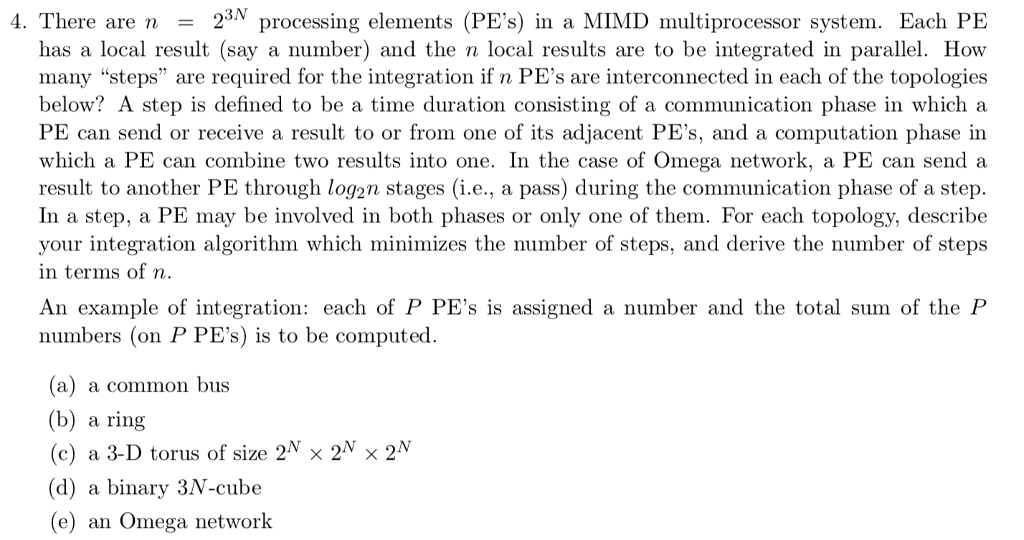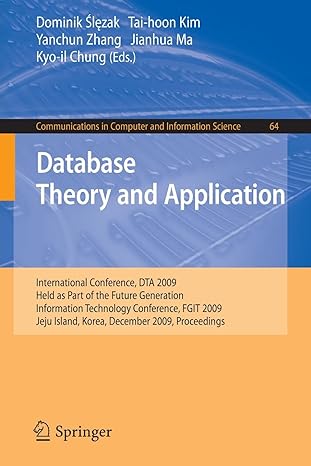Answered step by step
Verified Expert Solution
Question
1 Approved Answer
Please help with the following. I mostly do not understand how cases will b-e will differ since I feel like a ring will solve the
 Please help with the following. I mostly do not understand how cases will b-e will differ since I feel like a ring will solve the problem in the same number of steps as the others.
Please help with the following. I mostly do not understand how cases will b-e will differ since I feel like a ring will solve the problem in the same number of steps as the others.
Edit: This is a parallel processing question. A-E are different multiprocessor systems, and we are asked to find the number of each steps required to finish the computation for each different system.
4. There are n -23N processing elements (PE's) in a MIMD multiprocessor system. Each PE has a local result (say a number) and the n local results are to be integrated in parallel. Hovw many "steps" are required for the integration if n PE's are interconnected in each of the topologies below? A step is defined to be a time duration consisting of a communication phase in which a PE can send or receive a result to or from one of its adjacent PE's, and a computation phase in which a PE can combine two results into one. In the case of Omega network, a PE can send a result to another PE through log2n stages (ie, a pass) during the communication phase of a step In a step, a PE may be involved in both phases or only one of them. For each topology, describe your integration algorithm which minimizes the number of steps, and derive the number of steps in terms of n. An example of integration: each of P PE's is assigned a number and the total sum of the P numbers (on P PE's) is to be computed (a) a common bus a ring 2N 2N (c) a 3-D torus of size 2" (d) a binary 3N-cube (e) an Omega network 4. There are n -23N processing elements (PE's) in a MIMD multiprocessor system. Each PE has a local result (say a number) and the n local results are to be integrated in parallel. Hovw many "steps" are required for the integration if n PE's are interconnected in each of the topologies below? A step is defined to be a time duration consisting of a communication phase in which a PE can send or receive a result to or from one of its adjacent PE's, and a computation phase in which a PE can combine two results into one. In the case of Omega network, a PE can send a result to another PE through log2n stages (ie, a pass) during the communication phase of a step In a step, a PE may be involved in both phases or only one of them. For each topology, describe your integration algorithm which minimizes the number of steps, and derive the number of steps in terms of n. An example of integration: each of P PE's is assigned a number and the total sum of the P numbers (on P PE's) is to be computed (a) a common bus a ring 2N 2N (c) a 3-D torus of size 2" (d) a binary 3N-cube (e) an Omega networkStep by Step Solution
There are 3 Steps involved in it
Step: 1

Get Instant Access to Expert-Tailored Solutions
See step-by-step solutions with expert insights and AI powered tools for academic success
Step: 2

Step: 3

Ace Your Homework with AI
Get the answers you need in no time with our AI-driven, step-by-step assistance
Get Started


